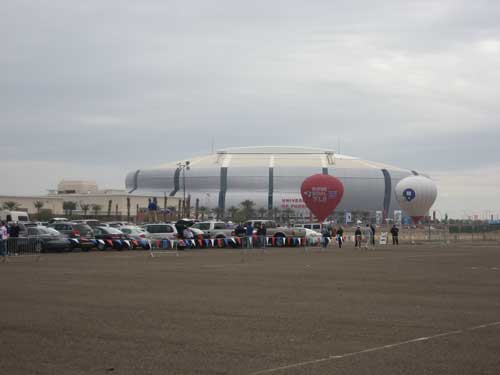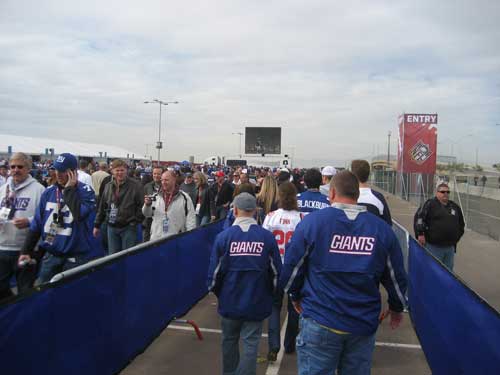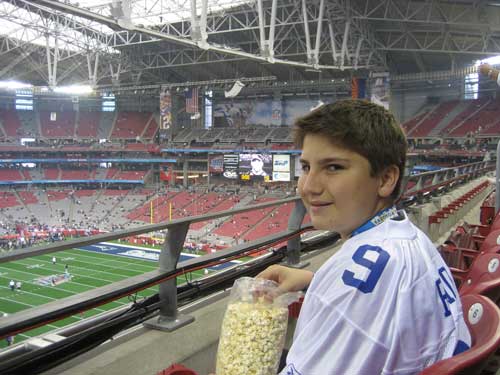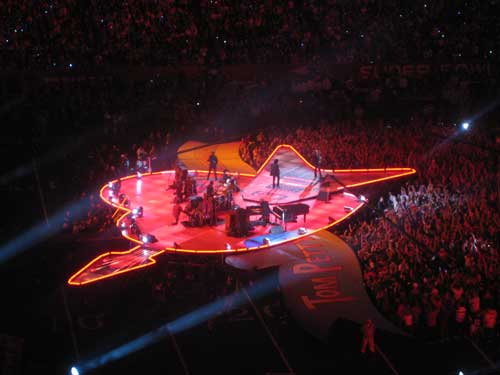Glendale Keeps Throwing Money After Sports
I have no idea why this town of 250,000 people is so fired up to hand money over to sports enterprises. This time, its a Superbowl bid:
Glendale is throwing its support behind a regional bid to bring Super Bowl XLIX to the city in 2015.
In return for the prestige of hosting the National Football League game at University of Phoenix Stadium, Glendale must guarantee services such as public safety and sanitation for free and exempt game-day tickets from sales tax for the NFL.
When Glendale hosted its first Super Bowl in 2008, it saw $1.2 million boost in sales-tax revenue. But a city-commissioned study showed it cost the city $2.6 million in services.
The City Council on a 5-2 vote Tuesday approved the resolution. Councilwomen Joyce Clark and Norma Alvarez dissented.
Councilman Phil Lieberman asked for Glendale's cost to host the Super Bowl in 2015, but Deputy City Manager Cathy Gorham said she didn't want to speculate because "things change on a regular basis." The needs in 2015 may be much different from 2008, she said.
These guys are beyond parody. We lost money last time so lets do it again, and by the way lets be sure not to estimate our costs before we make this decision. Here is a bit more:
Clark said the NFL's demands grow more "invasive" every year.
Clark ticked off requirements such as use of the stadium for nearly two months, final cleaning of the stadium and equipment as needed for free. The NFL doesn't pay state or local levies such as payroll, sales, use and occupancy taxes.
Clark cited two former host cities, Arlington, Texas and Miami Gardens, Fla., which did not shoulder the costs of a Super Bowl. In both those cities, the states stepped in and reimbursed them, Clark said. She said that communities that hosted the NFL game didn't see "big spikes" in their tax revenues.
"The city of Glendale should not be expected to pay the Super Bowl's costs without recompense when it benefits the entire region," she said. "We are at a disadvantage because the NFL is hosting in our city."
Alvarez, an ardent opponent of using taxpayer money for professional sports, said the city was in no position to be spending money for the Super Bowl with the economic crisis. She said she couldn't face her constituents if she supported the resolution when there are unmet community needs and employees are still taking unpaid days off.
Note the only alternative suggested - the alternative is not "let's not do this, it makes no sense" but "let's make sure we stick the costs on a larger group of taxpayers.
More articles on Glendale and sports subsidies .





